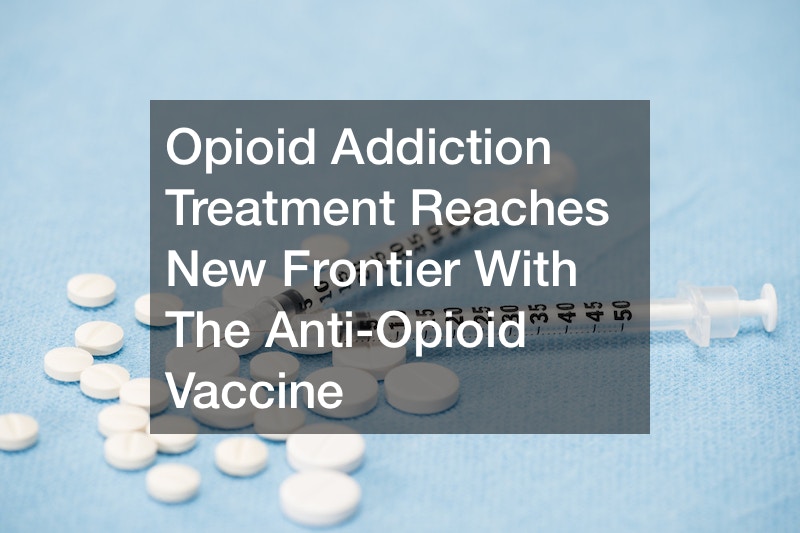

The fight against drug use around the world has changed in the last few years as an anti-opioid vaccine has now been presented. This medication is meant to block substances such as heroin and fentanyl from entering your brain. Therefore, they prevent addiction. That discovery, coupled with a suboxone addiction treatment, might finally help “cure” this condition.
Any physician knows that addiction is not the kind of disease that can be cured, exactly. It has always taken time, but most of all, a patient’s strong will to recover. Most spend the rest of their lives trying not to do drugs again or be tempted by others using them. Sometimes, they see signs of someone using fentanyl and get hooked again. A recovering addict needs to stop himself from falling off the wagon every day.

Now, these patients might not need regular codeine addiction treatment. With a vaccine, the heroin recovery rate might finally increase, as it’s one of the most addicting substances ever made. However, any kind of recovery will depend on each patient. Sometimes, not even searching for “what does an overdose look like?” can help them.
Let’s find out more about how this vaccine is changing the world of drug recovery.
It’s no secret that our country is facing an addiction epidemic: every day, more than 115 Americans die from opioid overdoses. News channels and government officials are constantly referring to this crisis, yet nothing substantial has been done to change those statistics. Fortunately, there may be a new weapon in this ongoing war: an anti-opioid vaccine.
Vaccines, historically, have been used to protect against devastating viruses and diseases. The developments made so far have been extremely successful: vaccines prevent around 2.5 million unnecessary deaths every year. But opiates like prescription painkillers (Dilaudid, OxyContin, Vicodin, etc.) and heroin aren’t living organisms that the body wants to fight against.
However, new discoveries regarding immunotherapies make it possible for this anti-opioid vaccine to stimulate an immune response (a.k.a. produce antibodies) that targets drug molecules like heroin or fentanyl; this makes it impossible for them to cross the blood-brain barrier into the central nervous system, thereby blocking the opioid effects. Fentanyl is a powerful opioid prescribed for extreme pain that is 50% to 100% more potent than morphine.
“The vaccines prompt an individual’s body to generate anti-opioid antibodies,” said Matthew Banks, lead author and associate professor in the Department of Pharmacology and Toxicology in the VCU School of Medicine. “If a person injects heroin or fentanyl after they have been vaccinated, those antibodies are there to capture the drugs in the bloodstream, which should prevent people from getting high.”
Unlike current FDA-approved therapeutics such as naloxone, methadone, and naltrexone (which target and block opioid receptors), Banks’ vaccine inspires the body to fight for itself against these harmful intruders. Since the immune system doesn’t naturally interpret them that way (hence why addiction is so easy to achieve in the first place), the opioid molecules are attached to “clinically available carrier proteins,” such as the tetanus vaccine, which tells the immune system to start pumping out antibodies.
Obviously, any not-yet-approved vaccines need to go through rigorous testing procedures (courtesy of the FDA) to ensure they are not only effective but safe to use. Banks and his team at the VCU are currently exploring the vaccine’s efficacy through testing, but all labs experience the same main risk: contamination.
There have been numerous incidents in the U.S. where vaccines were tainted; as such, clean room procedures were implemented, the chief of which relies on a fully functional fume hood. Unfortunately, recent surveys concluded that one-fifth of laboratories needed to replace their fume hoods, primarily because they were so old. The last thing an opioid addict needs is to get sick from bacteria contained within the vaccine that was supposed to change their lives.
The future of this vaccine may still have a long road to travel, but it nonetheless offers a glimmer of hope for those suffering from crippling opioid addictions.